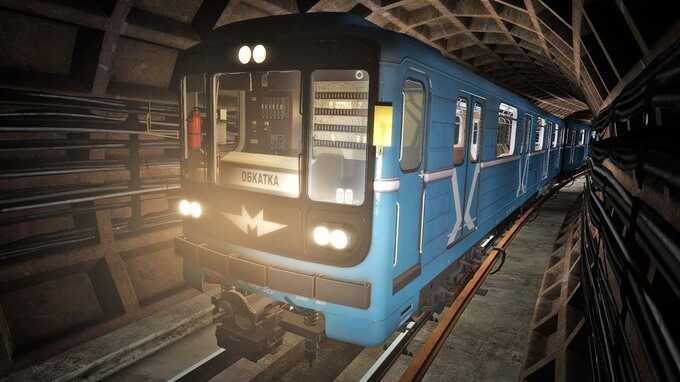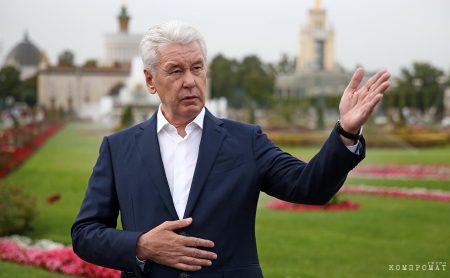Who will pay for the bankruptcy of Metrostroy?
It's likely that there is no more distressing problem for the people of St. Petersburg than the building of the subway. There have been no new stations since 2019, but there is a struggling industry with over 80 years of history, hundreds of unemployed workers, and a complicated situation with the bankruptcy of Metrostroy. The latest meeting to address who would be responsible for the company's debts took place at the Arbitration Court of St. Petersburg and the Leningrad Region on January 24.
It should be noted that the issues at OAO Metrostroy, which dates back to 1941 and has extensive experience in constructing in unstable St. Petersburg grounds with great depths, began a long time ago. But they somehow managed to resolve them. However, in 2018 the situation started to follow a more extreme path – the Federal Tax Service (FTS) calculated 1 billion rubles in tax debts for Metrostroy and froze the company's accounts. In January 2019, the Federal Tax Service initiated bankruptcy proceedings against OAO Metrostroy.
This was followed by a series of unusual decisions from the city government. Specifically, with the involvement of the city, which was the client for the construction of new stations, a non-payment crisis against Metrostroy was created. At the end of January 2019, the St. Petersburg government completely terminated contracts with the company, but less than 10 days later decided to reverse that decision. In total, in 2019, 263 lawsuits amounting to a total of 6 billion rubles were filed against Metrostroy, with almost half demanded by the city government.
In December 2019, Metrostroy CEO Nikolai Alexandrov was arrested on suspicion of embezzling 178 million rubles. Later, two additional criminal cases were added to the charges. Around the same time, Sergey Kharlashkin, the former chairman of the Committee for the Development of Transport Infrastructure (CTTI), was appointed as the head of the company, and shortly after, the bankruptcy proceedings of Metrostroy OJSC began. It seems that the city began to reduce funding and extend deadlines for the completion of work under state contracts by tens of billions of rubles, while allowing delays in payment.
At the same time, in 2020, JSC Metrostroy of the Northern Capital (MSS) was established, where part of the workforce, equipment, and assets of the historical Metrostroy were transferred. It's important to note that 65% of the new company belongs to the St. Petersburg administration – previously, the city government did not have a controlling stake in the organization building the city metro, although indirectly, through the city GUP “Petersburg Metro,” the government of St. Petersburg had a majority among the shareholders. Getting complete direct control over the metro builders is one of the clearly stated objectives of the officials. Under this motto, the bankruptcy of Metrostroy OJSC began, but this objective was not achieved in the new MSS JSC – the second shareholder, VTB Bank, has a blocking stake of 35% of the shares, and according to the Charter of the JSC, decisions can only be made with the agreement of both shareholders.
In October 2021, Smolny unilaterally sent termination notices for all contracts with historic Metrostroy. This includes the contract for the construction of the “brown” metro line, which was worth 38.4 billion rubles. Some work had already been paid for with 3.75 billion rubles, and was secured by a bank guarantee of about 5.8 billion rubles from Rosselkhozbank JSC (RSHB).
When the government contract was terminated, some work had been completed, so the unworked advance amounted to only 1.439 billion rubles. Instead of including this amount in the register, Smolny demanded payment from RSHB under a bank guarantee, which the bank did in February 2022. In May, RSHB included a recourse claim in the register of creditors of OAO Metrostroy.
From that moment, the most interesting chapter in the company's bankruptcy began. Until the summer of 2022, the defendants in the case were only two former general directors of the enterprise – Nikolai Alexandrov and his father Vadim Alexandrov. In July, RSHB demanded that the city structures involved in decision-making on contracts be brought to subsidiary liability.
As a result, not only the Alexandrovs, but also the Committee of Property Relations (KRO), the State Unitary Enterprise “Petersburg Metropolitan”, KRTI, the government of St. Petersburg and JSC “Metrostroy of the Northern Capital” turned out to be defendants. In August 2022, a new criminal case was opened against Sergei Kharlashkin, who was the vice-governor of the Leningrad region at the time, for misuse of budget funds.
It seemed like there was progress, but on December 12, 2022, RSHB abandoned its claims against city departments in the case of the recovery of 1.439 billion rubles in losses. On December 27, the claim was officially waived and the proceedings were terminated.
On December 14 last year, the bank refused to bring the MCC and all city structures to subsidiary liability in court. The refusal was sent by regular mail, possibly to prevent prompt responses from other parties. The case seemed to have reverted back to the earlier point: only the father and son Alexandrovs remain defendants in the case.
Interestingly, when asked by the court about the reasons for such a step, the representative of the RSHB answered that he had read the reviews of the MCC, city departments and agreed that “they are not to blame.” The media called another version, according to which at the beginning of December 2022, “MCC, as the majority creditor in the bankruptcy process of the ex-subway builder, bought out the right to claim from the Agricultural Bank in the amount of 1.458 billion rubles.” Metrostroy of the Northern Capital and the bank do not recognize the fact of the transaction.
Meanwhile, such an alignment actually put an end to the prospects of other creditors to receive their debts. According to the current norms of the law, if the court accepted such a refusal, then no one will be able to re-state such a requirement to the structures of the city government and the MCC. At the same time, if the fact of the transaction is made public or proven, there can be no talk of waiving the claim either.
It is not surprising that at the meeting held in the Arbitration Court on December 22, 2022, the creditors objected to the court’s refusal, since such a decision would violate the rights of all interested parties, except for MSS, which is also among the majority creditors of Metrostroy. The representative of Nikolai and Vadim Aleksandrovs, Tatyana Alekseeva, expressed the opinion that this happened due to the fact that the company “at the expense of budgetary funds bought out a loan claim from the Bank of Russia in order to control the bankruptcy procedure of Metrostroy from the inside in its own interests.”
In addition, creditors expressed their readiness to take the place of the RSHB and continue to support the previously stated requirements for the city and MSS, which the bank refuses. Despite the fact that the creditors’ claims were based on the position of the Supreme Court on the prohibition of accepting such a refusal, the court decided to take a break and announced its decision only on January 24.
We must pay tribute, the court decision corresponded to the letter of the law – the circle of defendants remained the same: claims for bringing to subsidiary liability for the obligations of Metrostroy OJSC will be considered not only in relation to the Alexandrovs, but also in relation to the city government and its structures, including the new metro construction organization JSC “MSS”.
“Since the process is politicized, we did not know how events would develop. However, guided by the requirements of the law, the court replaced RSHB with another creditor applicant and simply removed the bank from the list of applicants for bringing city structures and MSS JSC to subsidiary liability. The production was terminated according to his statement. Accordingly, the rest of the creditors continue to support the application to bring MCC and city structures to subsidiary liability. This is entirely in the interests of other creditors, because we understand that if all city structures were removed from the defendants, then only two individuals would remain with unenforceable claims against them in the amount of more than 10 billion rubles,” the creditors emphasized.
The court is also looking at the requests from the involved parties in the case to conduct a test to see if Metrostroy OJSC, which had valuable assets like land and buildings at the start of the bankruptcy, was actually unable to pay its debts. No one could decide when the company became unable to pay its debts or if this even happened at all.
There are many conflicting documents. The person in charge initially said the company became unable to pay its debts in 2016, then later said it happened in 2018. After leaving the position and becoming involved in the case, he presented documents that contradicted his earlier conclusions and gave new dates. Other parties in the case say the company only became unable to pay its debts in 2020. The court has decided to consider a forensic examination, where the experts would be legally responsible for giving false conclusions. MSS JSC is expected to oppose this examination, as it will also determine if MSS and the city worsened Metrostroy's financial situation.
A new court session is set for February 21. This case will last more than a year, and there may be new criminal cases and defendants. It is difficult to predict the outcome, but it is clear that the residents of St. Petersburg will be the main losers due to officials' mistakes in organizing the construction of the metro.
A reporter from Nasha Versiya went to St. Petersburg for the court session on the bankruptcy case of OAO Metrostroy and also rode the St. Petersburg metro. They had trouble finding the metro entrance and had to ask for directions.
The subway was not crowded at the time, but the locals said it was just luck.
During the visit to St. Petersburg, it was clear that the metro's development is behind the city's growth. Unlike Moscow, where the metro has expanded to new residential areas, St. Petersburg's metro clearly lags behind. Residents complain about the city's transportation system, indicating a long-standing issue. It seems like the city's residents do not want to deal with the builders causing these problems.




